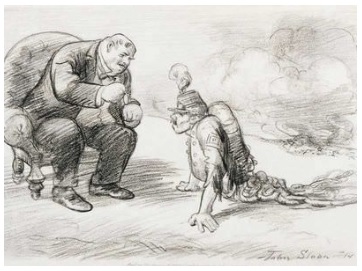Following a request from staff in HCA, the Library currently has trial access to two digital primary source collections from British Online Archives, Conscientious Objection during the World War 1 and The Middle East, its division into countries and the creation of Israel, 1879-1919.
Trial access ends 6th August 2017.
Conscientious Objection during the World War 1
 During World War One, Conscientious Objectors united to oppose the war despite the criticism they faced. Three of these anti-war protest groups included the Conscientious Objector Information Bureau, the Union of Democratic Control, and the No-Conscription Fellowship. Conscientious Objection during the World War 1 includes complete files of key anti-war publications. It also contains rare reports from the Conscientious Objector Information Bureau. The internal papers include minutes from the Union of Democratic Control and letters from the No-Conscription Fellowship. The Fellowship’s most prominent figure, Clifford Allen, wrote a number of these items. Local Fellowship branches in Willesden, Middlesex and in Hyde, Greater Manchester are also covered. Also included amongst the papers is Thomas Henry Ellison’s scrapbook. Thomas was a Conscientious Objector and spent much of his time during the war in prison. His scrapbook covers both his own experiences and the experience of the anti-war movement as a whole.
During World War One, Conscientious Objectors united to oppose the war despite the criticism they faced. Three of these anti-war protest groups included the Conscientious Objector Information Bureau, the Union of Democratic Control, and the No-Conscription Fellowship. Conscientious Objection during the World War 1 includes complete files of key anti-war publications. It also contains rare reports from the Conscientious Objector Information Bureau. The internal papers include minutes from the Union of Democratic Control and letters from the No-Conscription Fellowship. The Fellowship’s most prominent figure, Clifford Allen, wrote a number of these items. Local Fellowship branches in Willesden, Middlesex and in Hyde, Greater Manchester are also covered. Also included amongst the papers is Thomas Henry Ellison’s scrapbook. Thomas was a Conscientious Objector and spent much of his time during the war in prison. His scrapbook covers both his own experiences and the experience of the anti-war movement as a whole.
The documents included were sourced from Hull University Archives, the Working Class Movement Library, Salford and the library of the Religious Society of Friends, London. The database includes 6,888 pages belonging to 13 documents housed in 2 volumes.
Access: Conscientious Objection during the World War 1
Access is on-campus only or off-campus if using VPN.
Trial access ends 6th August 2017.
The Middle East, its division into countries and the creation of Israel, 1879-1919.

One of the authors of the Sykes-Picot agreement in 1916; Sir Mark Sykes’ work would be the basis for carving up the Ottoman Empire after its collapse. This former Empire would be divided between Britain and France. The Middle East, its division into countries and the creation of Israel, 1879-1919 contains 4,860 pages belonging to 101 documents housed in 4 volumes. The papers included focus on Sykes’ experience in military intelligence and diplomacy in the Middle East, both before and during the First World War. The records also include items on the Armenian genocide. The Zionist movement was active during this time and records of its influence upon him are included in these papers.
The documents included were sourced from Hull University Archives.
Access: The Middle East, its division into countries and the creation of Israel, 1879-1919
Access is on-campus only or off-campus if using VPN.
Trial access ends 6th August 2017.
Feedback is welcome on either of these two resources.
Access is only available to current students and members of staff at the University of Edinburgh.
Caroline Stirling – Academic Support Librarian for School of History, Classics and Archaeology
